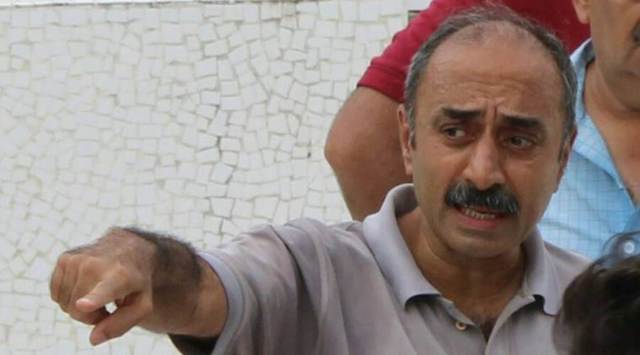1990 Custodial Torture: HC refuses Bhatt’s plea to bring in additional defence witness
Bhatt’s application had sought for the examination of Dr M Narayan Reddy as a witness in his defence to prove the actual cause of death of Prabhudas Vaishnani. Bhatt was convicted for Vaishnani's custodial torture and murder in 2019 by a Jamnagar sessions court and sentenced to life imprisonment.
 The court also expressed its displeasure at Dr Reddy for having “not even spared” the judge who conducted the trial. (File Photo)
The court also expressed its displeasure at Dr Reddy for having “not even spared” the judge who conducted the trial. (File Photo)A divison bench of the Gujarat High Court rejected an application moved by fromer IPS officer Sanjiv Bhatt to examine a Hyderabad-based doctor as a defence witness in the appeal against his conviction in a 1990 custodial torture case that is pending before the court.
Bhatt’s application had sought for the examination of Dr M Narayan Reddy as a witness in his defence to prove the actual cause of death of Prabhudas Vaishnani. Bhatt was convicted for Vaishnani’s custodial torture and murder in 2019 by a Jamnagar sessions court and sentenced to life imprisonment.
Bhatt, through his advocate Saurin Shah, submitted before the HC bench that the determination of exact cause of the death “is most crucial that will affect the final outcome of the appeal filed” by Bhatt against the judgment of the trial court convicting him.
The prosecution opposed Bhatt’s appeal on the ground that Vaishnani’s cause of death has been “succesfully proven” by examining two doctors, one who treated him and another who conducted his post-mortem, as prosecution witnesses.
The witness doctors had determined the cause of the death to be “acute renal failure, as a result of rhabdomyolysis”, and upon perusal of the deposition by the two doctors, the bench observed that “there is sufficient material on record to prove the cause of death of the deceased-Prabhudas.”
However, Dr Reddy in his affidavit had stated, “The opinion that it was a case of death due to “acute renal failure as a result of rhabdomyolysis” was not a reasoned and reasonable opinion of that of the doctors…They simply copied that opinion from the hospital case-sheet, without knowing what it is. There are no positive findings noted at the time of postmortem examination that supports this cause of death.”
The prosecution also submitted that whether, the evidence produced by the prosecution to prove the cause of death of the deceased before the trial court is believable or not, can be examined at the time of final hearing of the appeal, and that the present application filed under Section 391 of the Criminal Procedure Code, is not maintainable.
The interim judgement, dated August 24, by the court of Justices Vipul Pancholi and Sandeep Bhatt, and made public Friday, relying on Supreme Court precedents, held that “the prosecution has produced sufficient oral and documentary evidence to prove the exact cause of death of the deceased-Prabhudas.”
Additionally, the court agreed with the prosecution’s case that so far as the aspect of deciding whether on the basis of the said evidence the trial court has rightly passed the judgement and order of conviction, can be determined “at the time of final hearing of the appeal.”
Meanwhile, the division bench, perusing Dr Reddy’s affidavit, dated July 2019, which was not taken in the trial court’s records but was referred to by Bhatt’s lawyer at the HC during arguments—wherein Dr Reddy had expressed his opinion as a medico-legal expert—deprecated Dr Reddy’s comments.
The observation came after the court expressed its annoyance at “the language used” by Dr Reddy, questioning the qualifications and experience of the doctors examined as prosecution witnesses, with the court observing that “some of the comments made by Dr Reddy…not only are unwarranted but also very harsh.”
Newsletter | Click to get the day’s best explainers in your inbox
The court also expressed its displeasure at Dr Reddy for having “not even spared” the judge who conducted the trial.
Dr Reddy in his affidavit had submitted that the trial judge “did not apply his mind to know who the scientific expert is.” “We hope that Dr Reddy shall be more careful in future, while addressing the learned Judges or the Courts,” the court’s order records.







